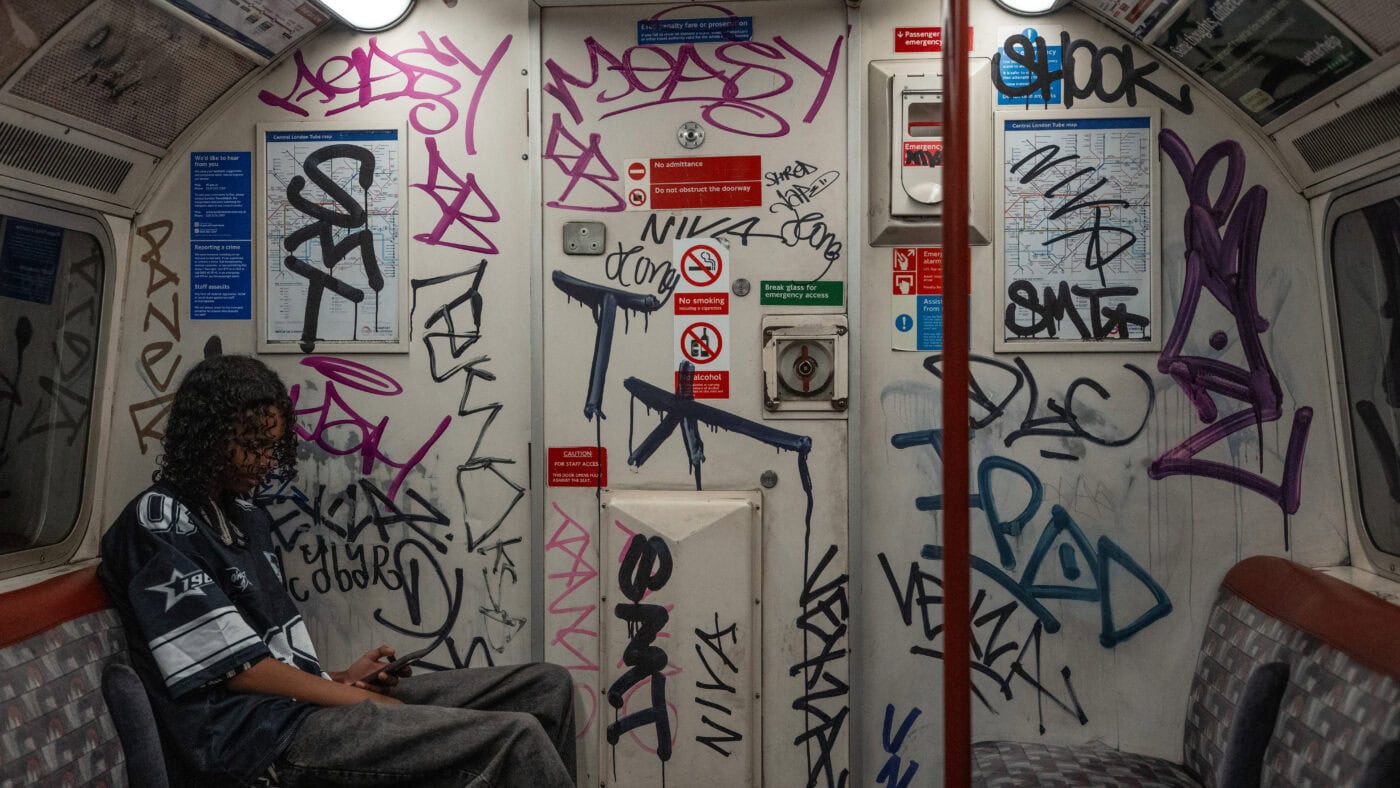Two weeks ago, the campaign group I co-run, Looking For Growth (LFG), made multiple headlines through the use of anti-graffiti spray and a couple of mornings on the Bakerloo line. Since then, Transport for London has finally made an effort to clean the lines, and has had these efforts reported uncritically by the BBC (with no mention as to why this was suddenly worthy of national news attention). The pace of change here is rapid – and shows that not much is required to get broken systems taped back together. This may not prove a lasting change (I am sure this situation will return to normal unless more action is taken) – but it is a fast shift. There is so much of this low hanging fruit around us – so many of our systems have let us down – that a lot of small changes are possible if we act. But what are the consequences of acting – and what does it say about our political sphere?
Anyone involved or close to politics knows how horrendous public attention can be. Politicians regularly face public humiliations, gossip runs riot and rumours can be plastered all over social media with little accountability. It is surprising that anyone does the job – and indeed, many good people stay far away from it. One of the hardest parts of any campaign is getting people to go in front of cameras – barely anyone good wants to do it. It invites criticism, it invites anger and the person volunteering to do so loses the ability to make mistakes publicly or otherwise. It has become quite usual to talk of a crisis of competency in politics – I think this uncomfortable reality of public attention is a large cause of that.
Something that none of the press focused on with the LFG graffiti cleans was that the people who attended expressly asked to not be on camera. For many volunteers, they want to do good things and to be a part of something doing those things – they don’t want to be recognised for it, they just want it to happen.
The cost for those involved in the graffiti clean was instructive – for many members of LFG, they are interested in politics but do not follow it religiously. Reactions of the commentariat were surprising to many of them. In particular, they were stunned at the smears they faced. Joe Reeve – co-founder of LFG – had his social media scoured, and anything problematic raised as a sign that his motives (of cleaning the tube he takes every day) must truly be about something darker. Others, in viral posts, claimed our volunteers had put the graffiti there in order to film themselves removing it. Other criticisms were of the sort that ‘these people would never do this without a camera on them’. And finally, of course, Joe’s criticism of London’s Mayor must be due to racism.
This all misses the mark – it misses just how bad things are in Britain right now. The shocking story is that volunteers would give up their time to climb onto a tube at 7am to clean graffiti – for free – and without any public acknowledgement they were there. Most did it namelessly. Joe doesn’t just do this when cameras are around – he carries anti-graffiti spray with him regularly – I asked him to record his next clean because I thought it would inspire people to make small changes and to turn their frustration into constructive action. In the last week, a Reform councillor and a Labour councillor have both gone viral for ‘just doing stuff’, cleaning up their local areas. Other people have sent us photos of signs they’ve cleaned at their parks or in their towns. Off the back of the tube cleaning, we have had over 400 people offer to volunteer at LFG in the last week alone.
We need small changes, all across the country – and we need them to be seen. That means we need more people stepping out into the public sphere, even against the headwinds – we need more people just doing stuff. We need action. Britain wasn’t built via paper, it was built with steel and resolve. It was constructed, hard fought for and raised from the dirt of epidemics, famine and poverty through hard-grit, science, perseverance and just doing stuff. I’m not saying cleaning the tube at 7am will fix the country or bring about the next golden age of industry – but I am saying that small things, collectively, build agency, and people seeing those acts are inspired to do their own. We need that right now.
Small things can scale – big things can come from those.
The state is in retreat, it is failing in the basics, we can live in that failure or we can do what Britain has always done best: build.
Click here to subscribe to our daily briefing – the best pieces from CapX and across the web.
CapX depends on the generosity of its readers. If you value what we do, please consider making a donation.


